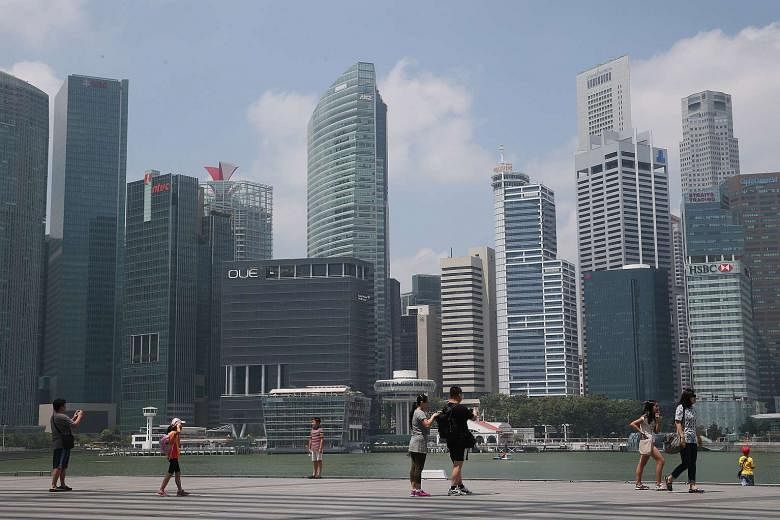SINGAPORE (BLOOMBERG) - Singapore's Finance Minister Heng Swee Keat has a juggling act to perform when he presents his first Budget to Parliament on Thursday (March 24): provide support to companies and workers grappling with the effects of faltering growth, while keeping the budget "prudent" in the first year of the government's new term.
That may prompt him to focus in the upcoming fiscal year on targeted economic support, after recent Budgets made notable contributions to social spending, with analysts predicting possible subsidies and tax incentives.
"Enabling companies to navigate the difficult business environment and helping workers maintain their employability against the backdrop of a softening labour market will be the key focus," DBS Group Holdings economist Irvin Seah said in a report this month. Still, "the chance is high that policymakers will aim for a modest surplus and keep its powder dry, particularly against the backdrop of the challenging economic environment".
Almost six months into the job, Mr Heng is grappling with faltering exports and a weak job market in the short term. In the longer term, he needs to put in place strategies to counter lackluster worker productivity, address the challenges of an ageing population and find new sources of growth for the economy.
The immediate needs are growing, as governments around the world come under pressure to ramp up fiscal support as some central banks resort to negative interest rates.
"Central banks can't save the world on their own," said Ms Selena Ling, chief economist at Oversea-Chinese Banking Corp. "Fiscal policy will have to play its part in stimulating the economy. They would go for a more supportive Budget."
Armed with ample tax revenue and supplemented by proceeds from Temasek Holdings, GIC and the Monetary Authority of Singapore, Singapore has the firepower to spend. Net investment returns contributions from the organisations is estimated to rise to about 3 per cent of GDP in the next fiscal year from about 2.2 per cent in the year ending March 31, according to Credit Suisse Group. In contrast, India's government last month stuck with a plan to narrow the budget deficit in favour of fiscal consolidation.
After plowing money into welfare to benefit lower-income families and the elderly since 2011, Singapore will probably focus on boosting productivity through training, and offer more subsidies and tax cuts to encourage automation and innovation, said Mr Michael Wan, an economist at Credit Suisse in Singapore.
While the government is unlikely to relax property curbs, it may tweak foreign worker policies, Bank of America Merrill Lynch wrote in a note this month. Companies want more support for overseas ventures including tax relief and larger grants for internationalisation efforts, according to a survey of companies by KPMG released in February.
Some things to watch for on Thursday:
- Any change to income tax rates - the government raised the rate for high income earners in last year's Budget.
- Any change to property curbs introduced in recent years, which have cooled prices and caused home sales to fall.
- Any relief for companies in foreign worker levies and tighter rules introduced in recent years, to help them cope with the economic slowdown.
Singapore faces an ageing workforce and its traditional pillars of growth like manufacturing and electronics are now tumbling. Its economy is among Asia's most vulnerable to swings in global demand.
Labour productivity has been shrinking with growth averaging -0.1 per cent in 2012 to 2015, below the government goal of 2 per cent to 3 per cent, according to Bank of America Merrill Lynch. Singapore is in the midst of a 10-year economic restructuring that includes reducing reliance on cheap foreign labour and boosting productivity.
The government had projected a gap of S$6.7 billion for the 2015 fiscal year, which ends on March 31, or about 1.7 per cent of gross domestic product. The administration, re-elected in September with a bigger majority, is constitutionally required to keep a balanced Budget over each term of government.
The government forecasts economic growth of 1 per cent to 3 per cent this year. Expansion was 2 per cent in 2015, the slowest pace in six years according to previously reported data compiled by Bloomberg.

